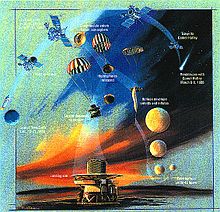1873 Susan B Anthony was fined $100 for having tried to vote in the presidential election in the previous November. The Susan B Anthony silver dollar was minted in 1979 in her honour. Those who prosecuted her have no such memorial.
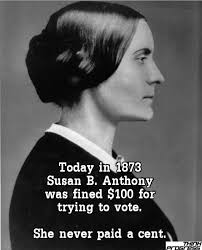
1923 The first Checker Cab hit the street in Kalamazoo Michigan. It was designed and built specifically to be a big city taxi, first in Chicago. A Russian immigrant and his family cobbled together the finance to build the first ones and were soon producing a hundred a month. In the 1960s Checker produced 8000 cars a year. Durable, manoeuvrable, dent-proof, and comfortable for driver and passengers, at twice the weight of a typical sedan they were also gas guzzlers. The last one was built in 1982. Ridden in a few but not the one Travis Bickle drove in 1976. Phew!

1960 Denver, Sports. A young man from the steel mill country of Pennsylvania won the Masters Gold Tournament in a remarkable last round in which he overcame a seven stroke deficit to tie and then set a course record that stood for years. This was Arnold Palmer whose simple speech, working class background, and affinity with the crowd was a breath of fresh air at a time when golf was the preserve of the idle rich. He learned golf early in morning and in the evening twilight in the private club where his father worked because he was not allowed on the greens when club members were active. In 1971 he bought that golf club and made it public.

1979 Vienna. President Jimmy Carter and Soviet First Secretary Leonid Brezhnev signed the SALT-II Treaty, limiting strategic nuclear weapons. Though never ratified, thanks to disruption caused by the Soviet invasion of Afghanistan, both parties observed its strictures. I heard the West German foreign minister of the day describe it as the most important treaty ever mooted.
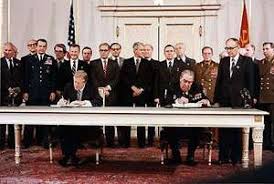
1983 Cape Canaveral. Sally Ride in Challenger went into a near Earth orbit. She was responsible for the guidance systems on ascent and descent, as well as operating the Canadarm to retrieve an orbiting satellite. This latter operation was the first time it had been tried and it succeeded.

Author: Michael W Jackson
17 June
1579 Francis Drake claimed Nova Albion for the crown in what is now San Francisco Harbor where his party stayed for about a month. Been to San Francisco several times but did not see any sign of Drake, but then I was not looking for it.
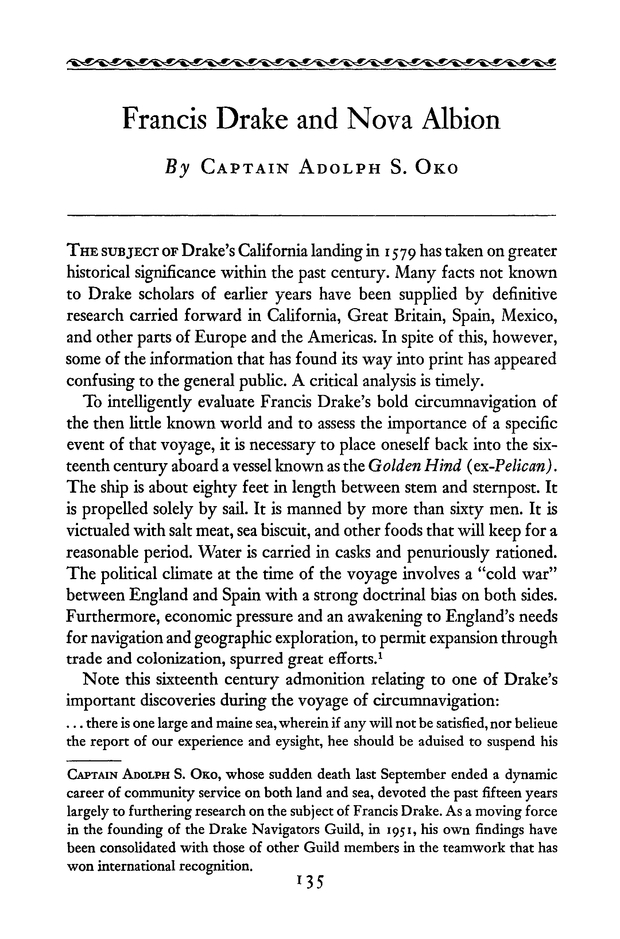
1885 New York City. Two hundred crates containing three hundred and fifty individual pieces arrived in the Harbor. When assembled over the following weeks, they made the Statue of Liberty. Lady Liberty was modelled after sculptor Frederic Bartholdi’s mother. Gustav Eiffel provided the structural engineering.
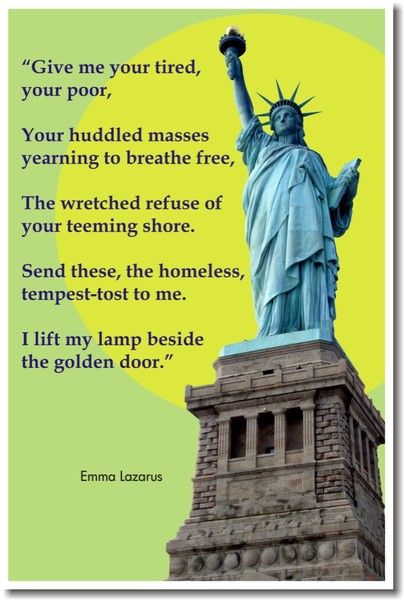
1928 Amelia Earhart of Atchison Kansas flew across the Atlantic in twenty plus hours to land in Wales. She did it again in 1932. She had flown an even greater distance from Oakland to Honolulu in 1925. Then she flew off into eternity far too soon.

1950 Chicago, Medicine. Dr Richard Lawler performed the first kidney transplant operation. There were more than 16,000 in the United States in 2015.

1961 Paris. About to return to Moscow Rudolf Nureyev at Le Bourget Airport sought political asylum by wrestling with the Soviet guards accompanying the Kirov troupe and vaulting a barrier. Only in 1993 did he return to Russia at the invitation of Mikhail Gorachev to appear on the stage at the Bolshoi Theatre in an emotional homecoming. There are videos of the leaping Rudi on You Tube.

16 June
1824 The Royal Society for the Prevention of Cruelty to Animals was founded in England. MP Richard Martin led a group of twenty-two parliamentarians which created the society and then lobbied for a royal warrant which was granted on this day.
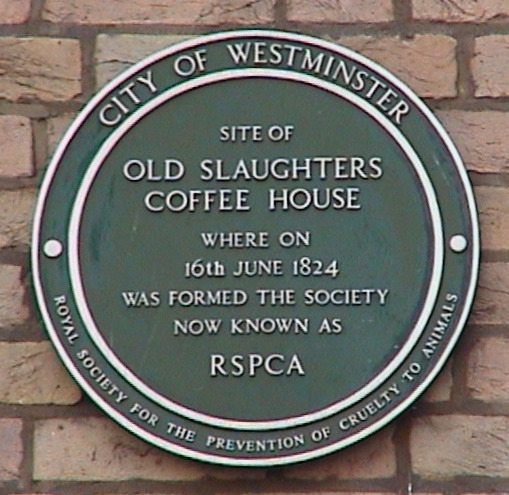
1884 Coney Island, LaMarcus Thompson opened for business the first documented switchback railway for amusement, that is, a roller coaster which attained speeds of six miles an hour. The appetite for roller coasters has waxed and waned over the years but they still exist. The biggest is 456 feet high and its cars reach 128 mph in New Jersey.
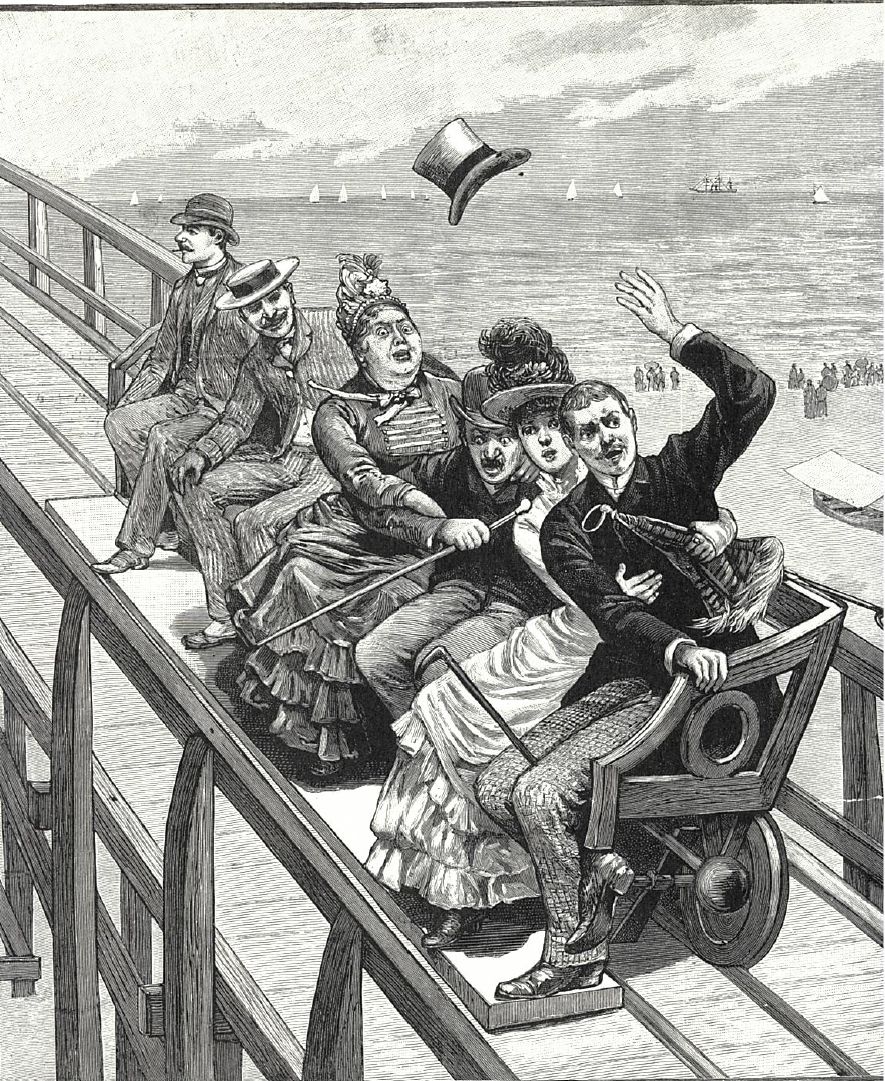
1903 Henry Ford founded the Ford Motor Company. He had started making horseless carriages in 1896. Those early sales funded the development of the Ford Model A as a reliable and inexpensive automobile. Books about his later efforts to grow rubber in South America for Fords are discussed elsewhere on this blog.
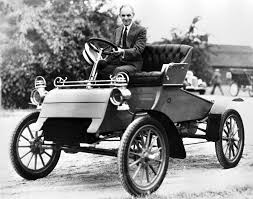
1933 President Franklin Roosevelt signed a bill creating the Federal Deposit Insurance Corporation. It guaranteed deposits in commercial banks, as part of a suite of measures to restore vitality and confidence in American banks. While the FDIC remains it was eviscerated during the Reagan Administration and as a result did nothing to avert the financial crises of the last decades, though it still has a staff of well-paid executives who attend meetings, as revealed in House hearings chaired by that crusader extraordinaire Henry Waxman.
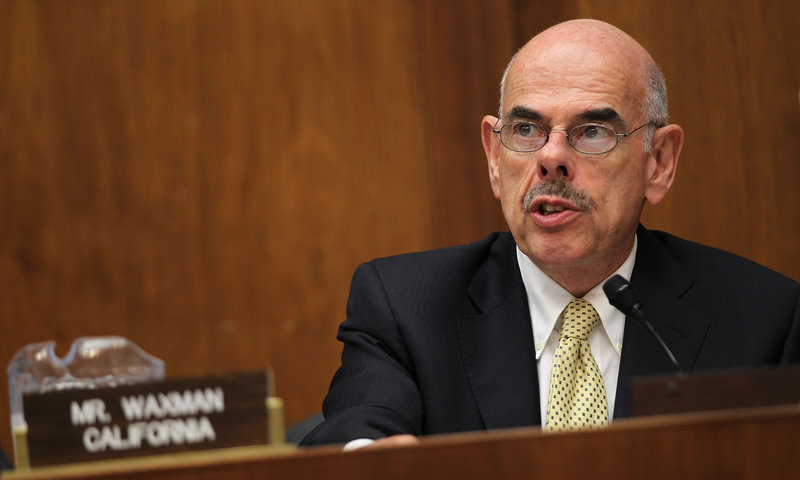
1963 On Vostok 6 cosmonaut Valentina Tereshkova became the first woman in space. Over three Earth days she did forty-eight orbits which added up to more time in space than all American astronauts combined to that date. It was part of campaign of Soviet Firsts in Space. After she left the space program she served as a representative on many national and international women’s organisations and events. Only in 1983 did NASA include a woman on board challenger.

15 June
1215 King John applied his regal seal to the Magna Carta, the first coherent statement of the rights of citizens, including private property, jury trial by peers, religious freedom, and more. King John had stumbled into one disaster after another, and in response to each raised taxes, which finally led nobles to resist. They met at Runnymeade on the Thames River to negotiate a conclusion since neither side could prevail by arms. Where was Robin Hood?
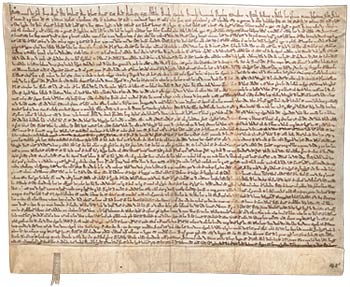
1300 Dante Alighieri was named one of the six priors who governed Florence. His father was a money lender whose wealth established Dante as a poet. As Prior he banished several writers who had criticised his poetry. In turn he himself was banished in 1302 and while a wandering penitent he wrote the Comedy through which his name continues to live. I once heard his English translator John Ciardi read passages from it, and the memory still stirs emotion. There is a mystery series featuring Dante as exampled below.
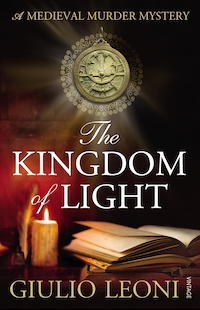
1844 Charles Goodyear patented vulcanised rubber which is a curing that alters the substance into a slick hard surface that resists weather and does not stick. Neither the blimp nor the tires has a direct connection to Goodyear, but rather that company took his name as an historic tribute. Ever more domed stadiums put the blimp pictured below out of business.
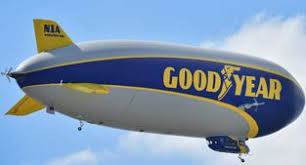
1944 Regina, Saskatchewan. The Cooperative Commonwealth Federation swept into office and the indefatigable Tommy Douglas became premier. His government led the way to hospital and health insurance, no-fault automobile insurance, old age pensions, and a host of other initiatives all while staying within budget. Where there was a will, there was a way. A biography of Tommy Can is discussed elsewhere on this blog.
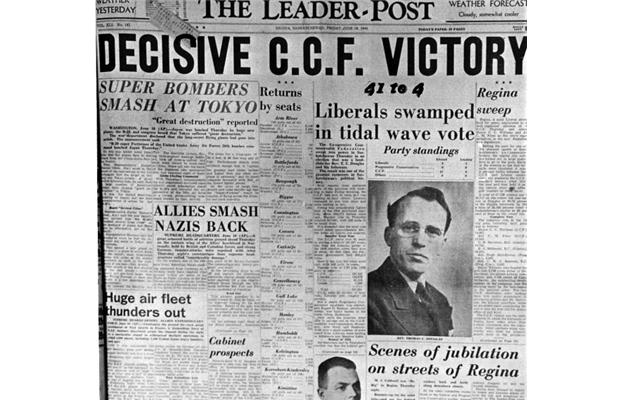
1946 US Ambassador to the UN Bernard Baruch presented a plan to bring nuclear technology and weapons under international control with extensive inspection and a gradual reduction in the production of arms in favour of other technologies. Distrust and hostility was no great that the proposal was rejected before the details had been tabled. It is unlikely that the plan would have been supported by the Senate, in any event. In NRA logic many of the officials who worked on the plan and lobbied in the United Nations for it, were soon to be the targets of that ravening beast HUAC and its spawn from Wisconsin.

14 June
1777 The US Congress adopted the stars and strips as the national flag. The popular lore is that a Philadelphia seamstress, Betsy Ross, designed it and gave it to George Washington who then recommended it to Congress.
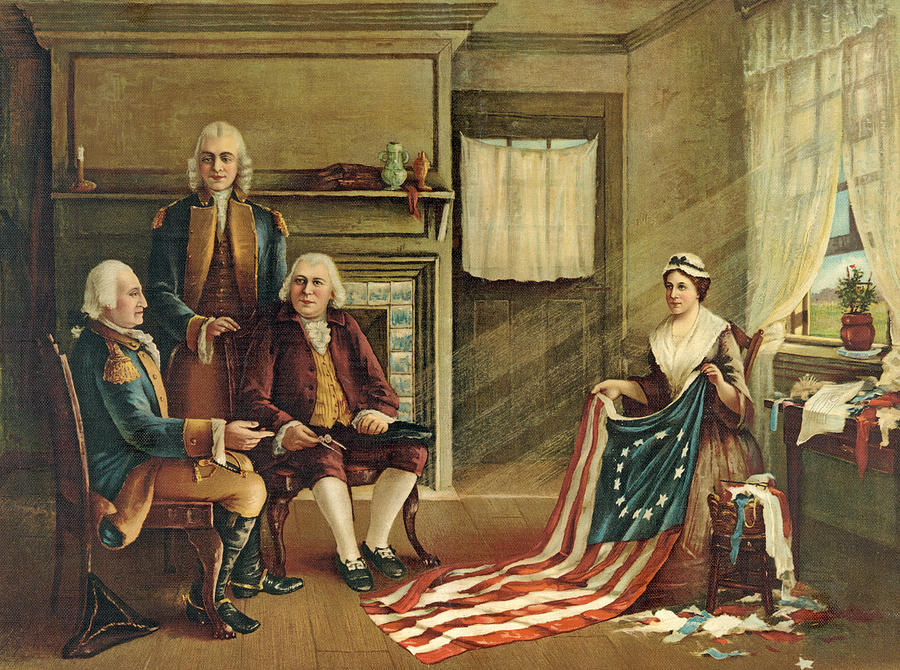
1846 Sacramento, CA. The ambitious and irresponsible Captain John Fremont declared the California Republic, which lasted three weeks. This action precipitated the Mexican-American War. Americans outnumbered Mexicans in the area, and many Mexicans wanted freedom from distant Mexico City. The self-styled Bear Flaggers modelled some of their actions and the star on the flag on the earlier revolt in Texas. When US Navy ships arrived to protect the Bear Flaggers from Mexican retaliation, the California Republic evaporated.
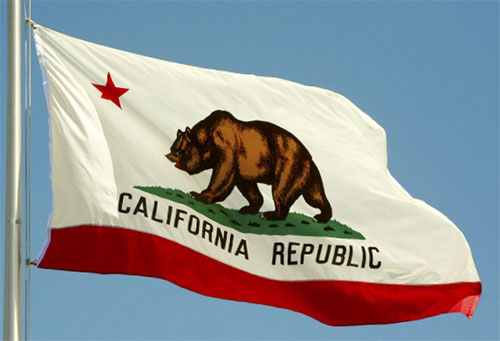
1914 St John’s, Newfoundland. John Adcock and Arthur Brown took off in a Vickers biplane made of canvas and plywood to fly across the Atlantic, landing sixteen hours later in Clifton Ireland. This was the first trans-Atlantic flight.

1951 The US Census Bureau turned on UNIVAC, a commercial digital computer named the Universal Automatic Computer, a successor ENIAC or Electronic Numerical Integrator and Calculator. UNIVAC weighed 16,000 pounds and used 5000 vacuum tubes. The cell phone today has more computing power that this behemoth.
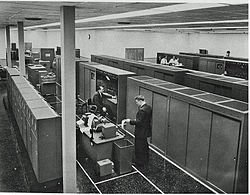
1954 The first nationwide civil defense drill in fifty-four cities to simulate a nuclear attack was declared a success though it was estimated that more than twelve million people would have been killed immediately. At 10 am Eastern Time alarms sounded and citizens were urged to seek shelter. President Eisenhower led the way by going underground. Such drills recurred with Conelrad tests a feature of my childhood. The name is a contraction of Control of Electromagnetic Radiation for those who must know such things. There are plenty of instances of such broadcasts on You Tube. (The most powerful reminder of those days is the film ‘Ladybug, Ladybug’ (1963). As usual the ‘New York Times’ reviewer, Bosley Crowther missed the point entirely in his comments on 24 December 1963.) Pictured below is an example of a duck-and-cover drill that we did. Today these drills are inspired by the NRA.
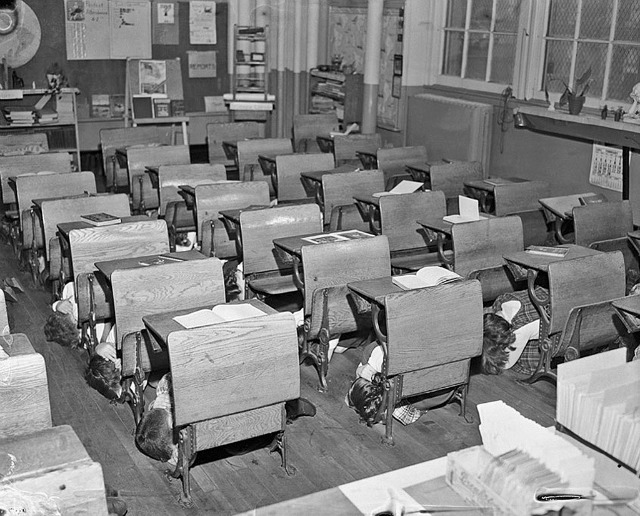
13 June
313 The putative date for the death of Alexander the Great in Babylon.
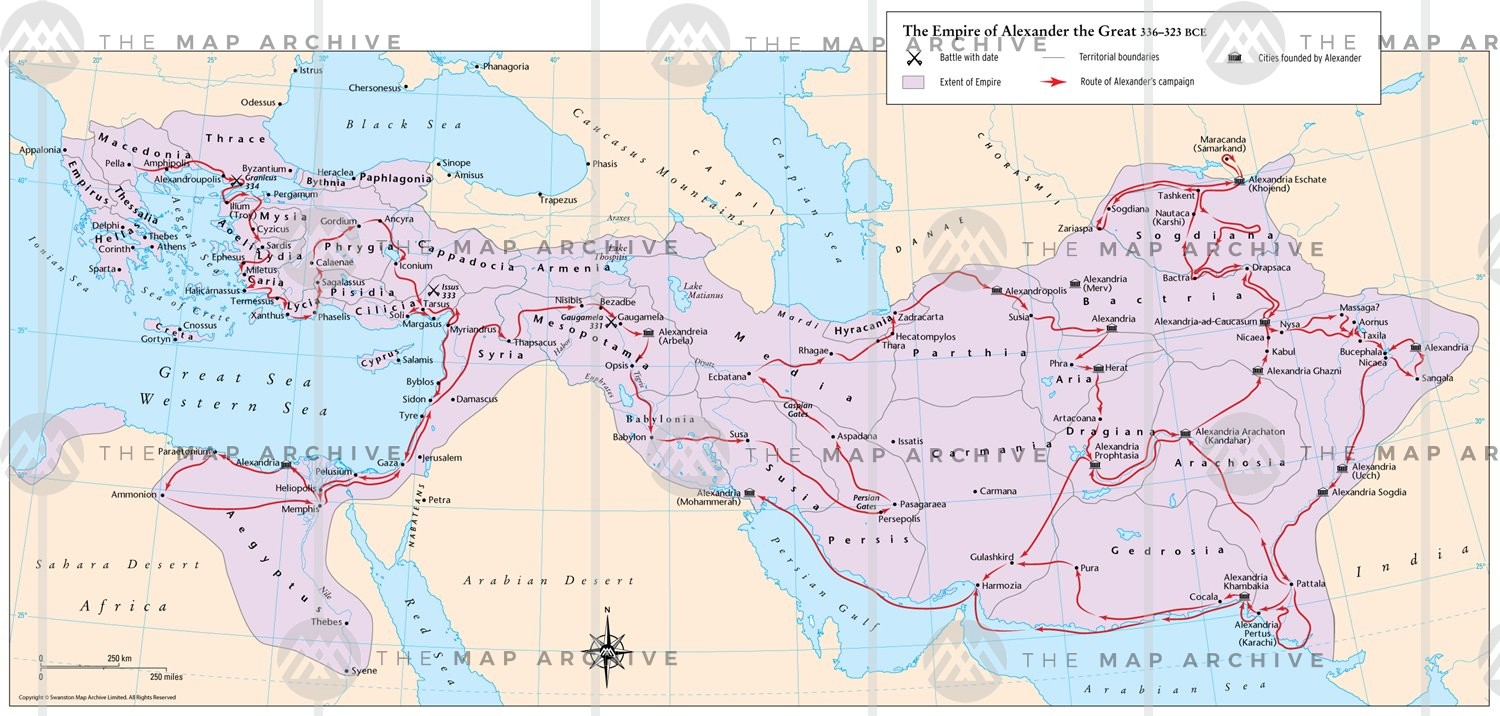
1816 Sydney. The ring road around the grounds of the Botanic Gardens was completed, and that has since been taken to be date of establishment of the Gardens. In 1959 the Gardens were granted the royal epithet. The visionary Lachlan Macquarie was governor at the time of its foundation. We have been in the grounds many times and sat in Mrs Macquarie’s chair. (Intriguing?)
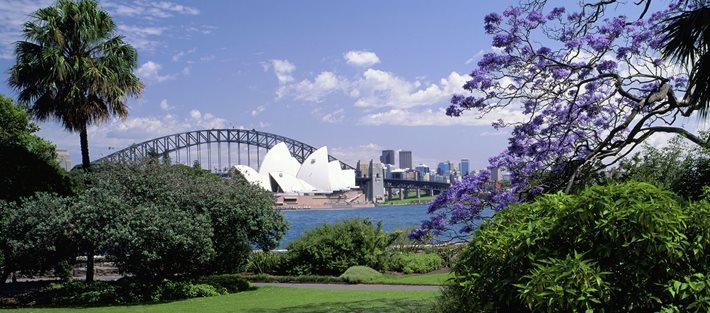
1923 Vegemite went on the market, the dark brown salt that tastes like uncooked yeast made from brewery waste. The Walker Company arranged a public competition to name this concoction. The winning name was picked from a hat. In the 1930s the name was changed to Parwill in response to competition from the equally dubious Marmite, but reverted to Vegemite in 1935. The name Parwill was used in a rhyming commercial on radio, and the advertising agency convinced the proprietor of Vegemite to change the name of the product to fit the jingle and linguistically to distinguish itself from Marmite. Much legal action occurred. Vegemite is an acquired taste like water boarding.
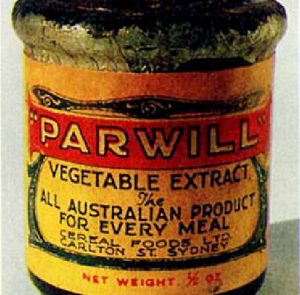
1966 The Supreme Court of Republican Chief Justice Earl Warren ruled in Miranda v Arizona that suspects must be informed of their rights before interrogation. Ernesto Miranda had been coerced into a confession and his American Civil Liberties Union legal team appealed. By the way Warren himself concurred with this ruling.

1990 Demolition of the Berlin Wall began. It had been breached in November 1989. The work was done by one-time East German border guards. Its twenty-eight miles completely surrounded West Berlin as an anti-fascist protection barrier to keep the fascists out of East Berlin such was their clamour to get it.

12 June
1792 Captain George Vancouver landed at the site that is now Vancouver though Wikipedia does not mention him in the entry on the city. He had earlier claimed King George Sound near Albany Western Australia for the crown. I have been to Rain City many times and it rained each time while I dined on sable, sturgeon, and halibut.

1912 Ottawa. The Chateau Laurier Hotel opened. Its owner was Charles Hays who had drowned a week earlier while travelling home for the event on the Titanic. Was it named for the Liberal Prime Minister of the time, Wilfred Laurier? Is it haunted by Hays’s ghost? While I stayed there once at a conference these questions I cannot answer.

1923 From Appleton Wisconsin Harry Houdini freed himself from a straight-jacket while suspended forty feet in the air upside down. He had toured Australia in 1910. He spent much of the latter part of his career debunking spiritualists and mediums who were defrauding the public. In do doing he clashed with Arthur Conan Doyle.
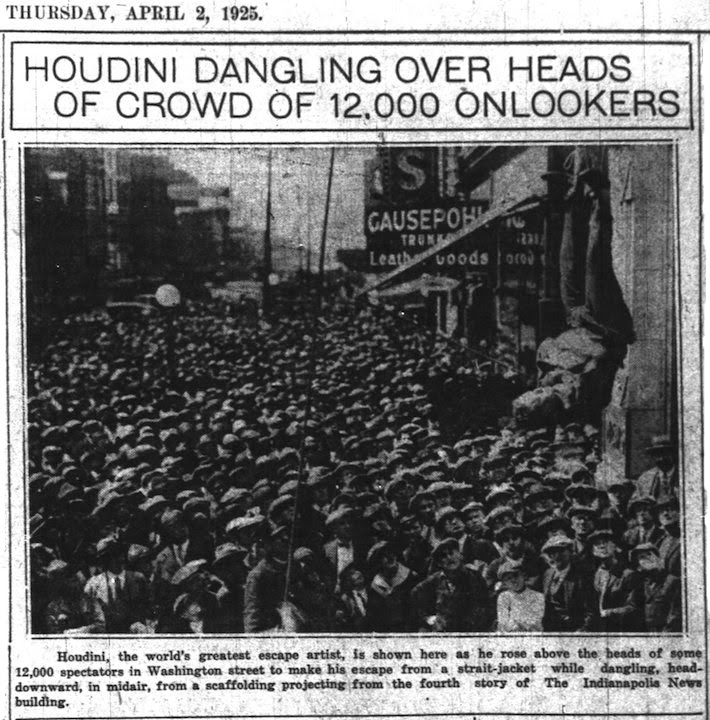
1931 The separate territories of North Australia and Central Australia were re-united as the Northern Territory. It had been entire until 1926 when it was split to make the vast real estate more manageable. However the Great Depression made it impossible to sustain two administrative centres, one in Alice Springs and one in Darwin, and the parts were re-united.
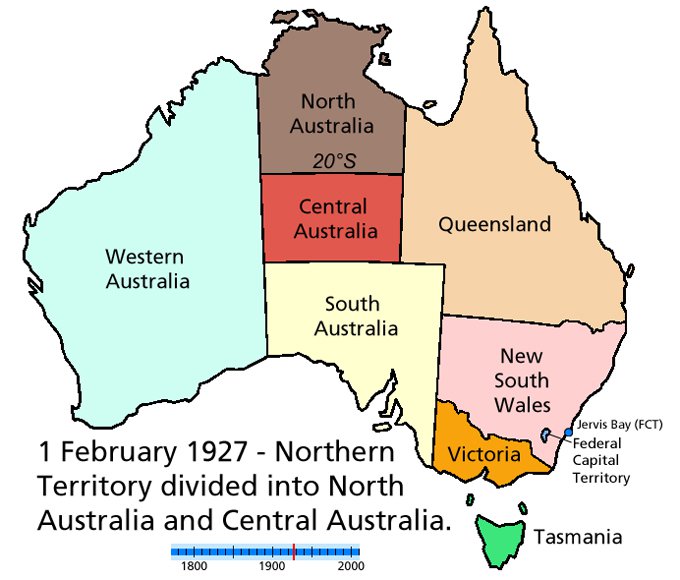
1991 Bois Yeltsin was elected president of the Russian Federation. The impossible happened when sales of vodka increased.
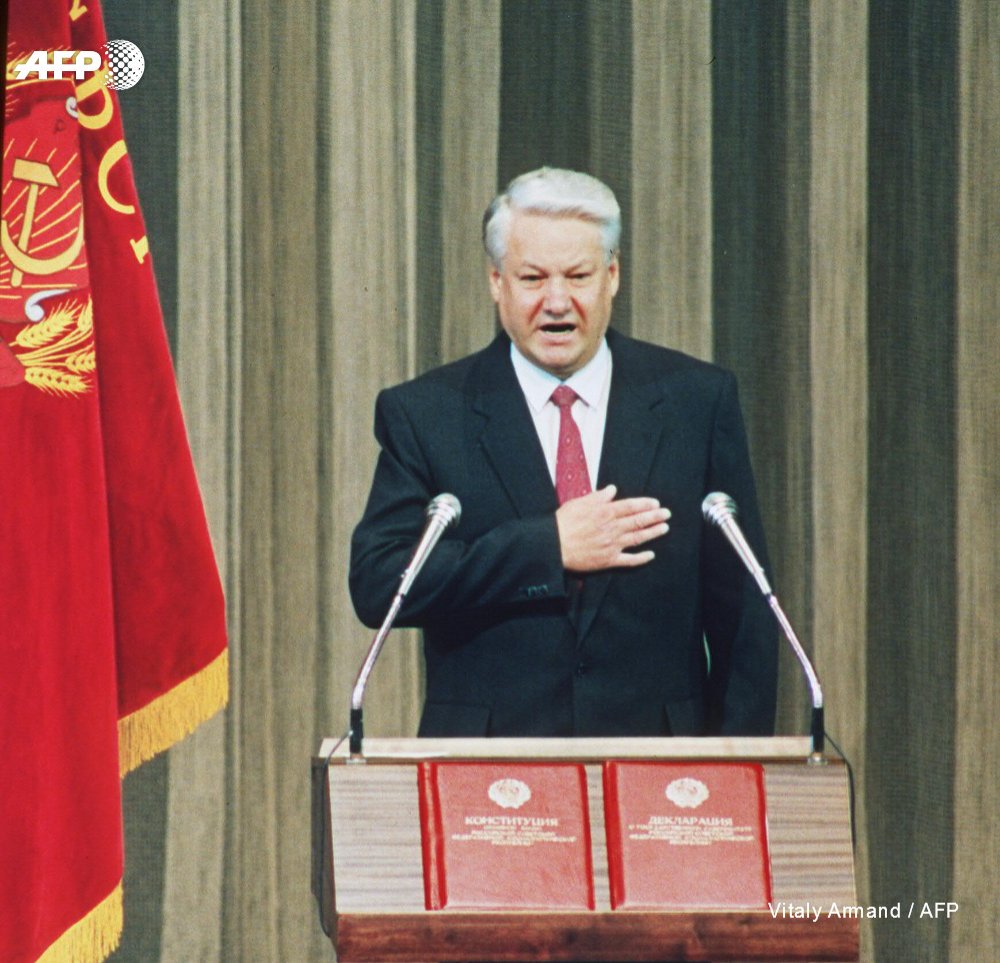
‘Death Shall Overcome’ (1974) by Emma Lathen.
GoodReads meta-data is 206 pages, rated 4.0 by 113 litizens,
Genre: Krimi

Verdict: Most welcome!
On Wall Street in the early 1970s investment banker John Putnam Thatcher reluctantly is drawn into a fight over the appointment of a new partner in a client firm. In that family firm one partner has died and the workload is piling up until a new one can be found. Nothing new in that.
But in this case the head of the firm is an irascible game player in his 80s who cares not a whit for convention and has no heirs to drop anchor on him. His final beau geste is to appoint a black man to the firm and nominate him for a seat on the New York Stock Exchange. While the Board of Governors of the Exchange can be relied up to be colour blind in considering the nomination, not so the clients of the firm or other members of the exchange. The black candidate is a well-qualified and immensely successful banker himself.
But the southern clients react and the southerners in the firms go off the rails at the idea of working for ‘one of them,’ as an analyst says while slamming doors. The racism is visceral and pronounced. There is one grotesque scene at a gala at the Lincoln Center when a racists stock broker of some wealth berates one and all, but most of all the hapless Thatcher for treating with ‘one of them,’ though this apostle of purity does not use such an oblique term. The racist then descends into an incomprehensible rant that today can only bring to mind President Tiny.
Amid all this conflict another of the partners of the firm is poisoned and dies. While a sniper per the cover art takes a shot at the black nominee. Thatcher starts putting two and two together.
Needless to say the obvious candidates are too stupid, impetuous, incompetent to murder anyone but the language, civility, and reason. As is to be expected, the least likely one did it!
This is part of a long running series, many of which I read in paperback years ago, perhaps even this one, though the mists of time have closed over it. This time I had on Kindle. The setting is evoked but not with crushing pedantry, the characters are many and differentiated, there is mystery rather than gore, and the dialogue is acerbic and droll. While the police are never central, they are portrayed as competent, focussed, and determined, not figures of ridicule to make Thatcher look better. He has no need of straw men to look good. Miss Corso, Thatcher’s office retainer, is a marvel of indifference to everything but her duties and in this single-minded application she invariably makes Thatcher feel he does not live up to her standard. Enuf said.
Emma Lathen is a partnership of two Harvard graduates in business, Mary Jane Latsis and Martha Henissart. They wrote twenty-four Thatcher novels and another seven set in Congress with another protagonist. The first appeared in 1961 but it was only in 1977 that their names became known. The secret had been successfully kept secret for fifteen years.
‘A Picture of Murder’ ( 2018 ) by T E Kinsey
Goodreads meta-data is 320 pages rated 4.31 by 2455 litizens.
Genre: krimi, period

Verdict: ambiguous.
In the heart of Little England at fictitious Littleton Cotterell in 1909 wealthy Lady Hardcastle and her redoubtable retainer Florence Armstrong, the maid of all work, including sleuthing, are settled in a Midsomer picturesque village in the southwest near Bristol. Flo narrates with a sharp eye and a sharper tongue.
Then the kinematographers come to the village, and by a mischance Lady Hardcastle offers them a roof. They had been scheduled to stay at a neighboring estate but a mysterious fire in the kitchen has made that impossible.
The kinematograpers screen an 18-minute film about the undoing of a witch to the protests of Republicans who see in filums the devil’s work. Meanwhile an aggrieved rival of the kinematographers appears at the pub with a tame journalist in tow. By the way the kinematographers include the film actors four. Finally some travelling musicians pop-in to muddy the waters and provoke a tiresome double backstory. Whew! Now that the cast is assembled, the mayhem can begin.
Because the kinematograph is the work of the devil, Christian vigilantes appears to picket, to protest, and cause trouble. The local vicar has some choice words to say about such pious thuggery that reminded me of many current tiny minds. For the Vicar God takes delight in the achievements of His creation. He’s sophisticated and wise and understands the subtleties of Man’s ingenious inventions. On the other hand, the self-proclaimed pious thugs exhibit resourcefulness only in their careful selection of scriptural texts to support small-mindedness, combing misquoted Bible verses and threats of eternal damnation.
Then the morning after celebrating until late tthe screening of the film, one of the actor is found, dressed in role, dead just as his character died in the film. The villagers were agog at seeing a film for the first time to begin with and the death — of course it had to be murder — drives one and all round the nearest bend. His death confirms the Christian thugs in their many prejudices.
The well meaning local plods are lost and Bristol CID sends in Inspector who is old mates with Her Ladyship and Strongarm. Since he has many other krims on the go back in the city, he more or less delegates the investigation to Lady and Maid.
Before you can say this is nonsense the leading lady is found dead, also in-role, in Lady Hardcastle’s very own kitchen! That makes it personal!
The Christian vigilantes make Prime Suspects. Then there is an artistic rival whose has dogged the steps of the kinematograpers across the land.
Along the way there are lessons about village life, the state of film-making at the time, the hills and dales around Bristol, and an insufferable load of banter between Hardcastle and Strongarm that pads out the story near to tedium. But they do some ratiocination to sort through all the parti-coloured herrings, which are many.
 T. E. Kinsey
T. E. Kinsey
The approach is more didactic than I can usually abide but in this case the information is well integrated and tossed off in portions. However, I found the insertion of a lengthy double backstory first about the tender years of Strongarm and then the adventures of Lady Hardcastle distracting, tedious, and limp, the more so considering this is number four in the series. Likewise the two travelling minstrels who show up again are simply there to cue the backstories not to move this one forward, and their message about the menacing German is left on the cutting room floor, or should have been since it is not resolved. I expect it is a tease for the next volume in the series. Is it any wonder that some readers grind their teeth?
11 June
1183 BC Troy was sacked and burned according the calculations of Eratosthenes in 200 BC while he was the librarian at Alexandria. He also calculated the circumference of the earth with great accuracy for which he is recognised as a founder of geography. We have been to the site of the horse tamers.
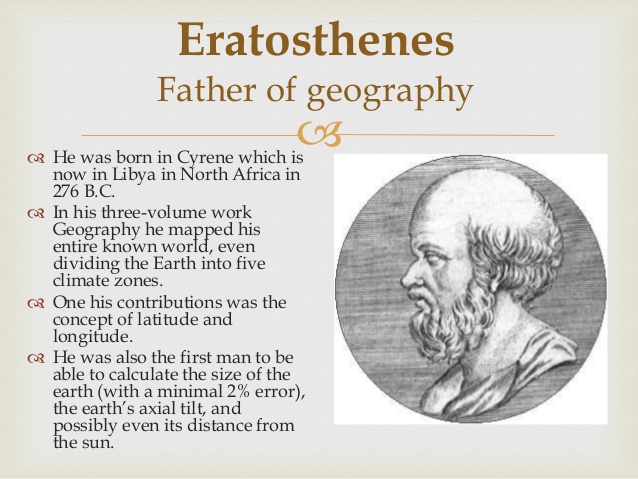
1788 Russian explorer Gerasim Grigoriev Izmailov reached the Alaskan coast, sailing into Yakutat Bay searching for sea otters and other furred animals. He called it ‘Alaska’ from the Aleut word meaning peninsula.
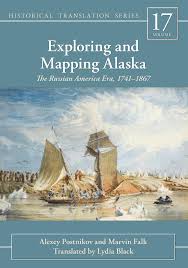
1863 Sydney. In honour of the wedding of the Prince of Wales New South Wales Governor Richard Bourke arranged a demonstration of electric lighting on Macquarie Street, using arc lamps which burn very hot and emit noxious fumes.

1901 New Zealand annexed the Cook Islands. Today the Islands are a self-governing territory in association with New Zealand in foreign and defence matters, much like Tokelau and Niue.
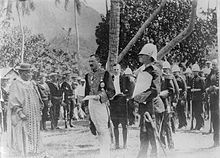
1985 The unmanned Soviet space craft Vega 1 soft-landed a probe on Venus while it went to intercept Halley’s Comet at a distance of nine thousand kilometres and took five hundred pictures, showing a nucleus of fourteen kilometres in length with a rotation every fifty-three hours. Vega 1 now remains in orbit around the sun, causing some to worry that it is depleting the ozone layer.
